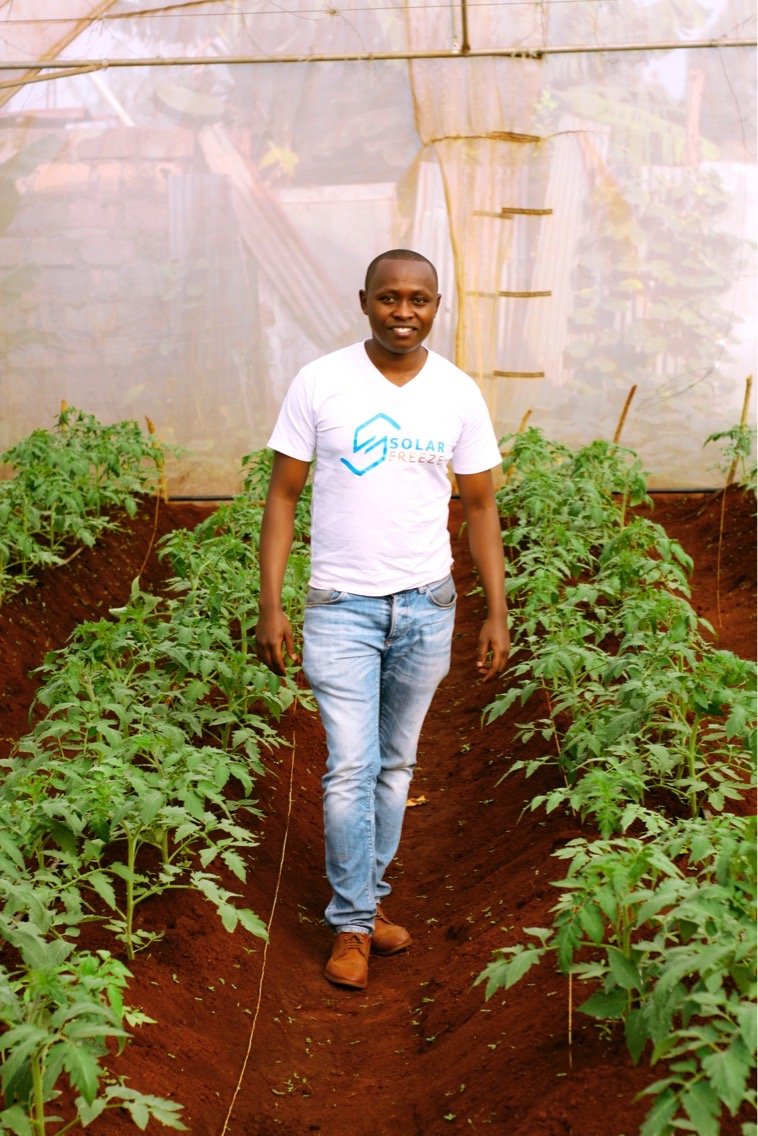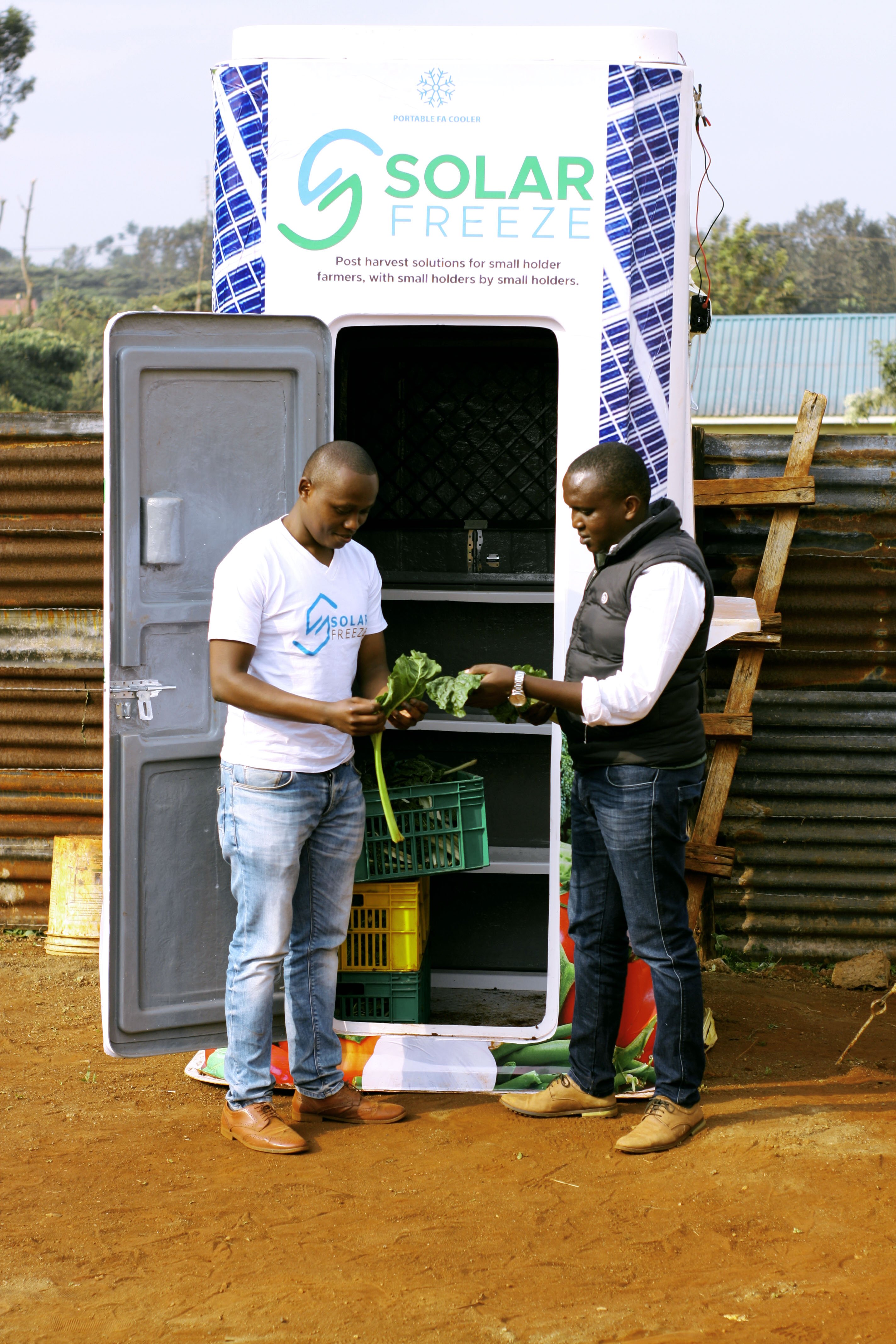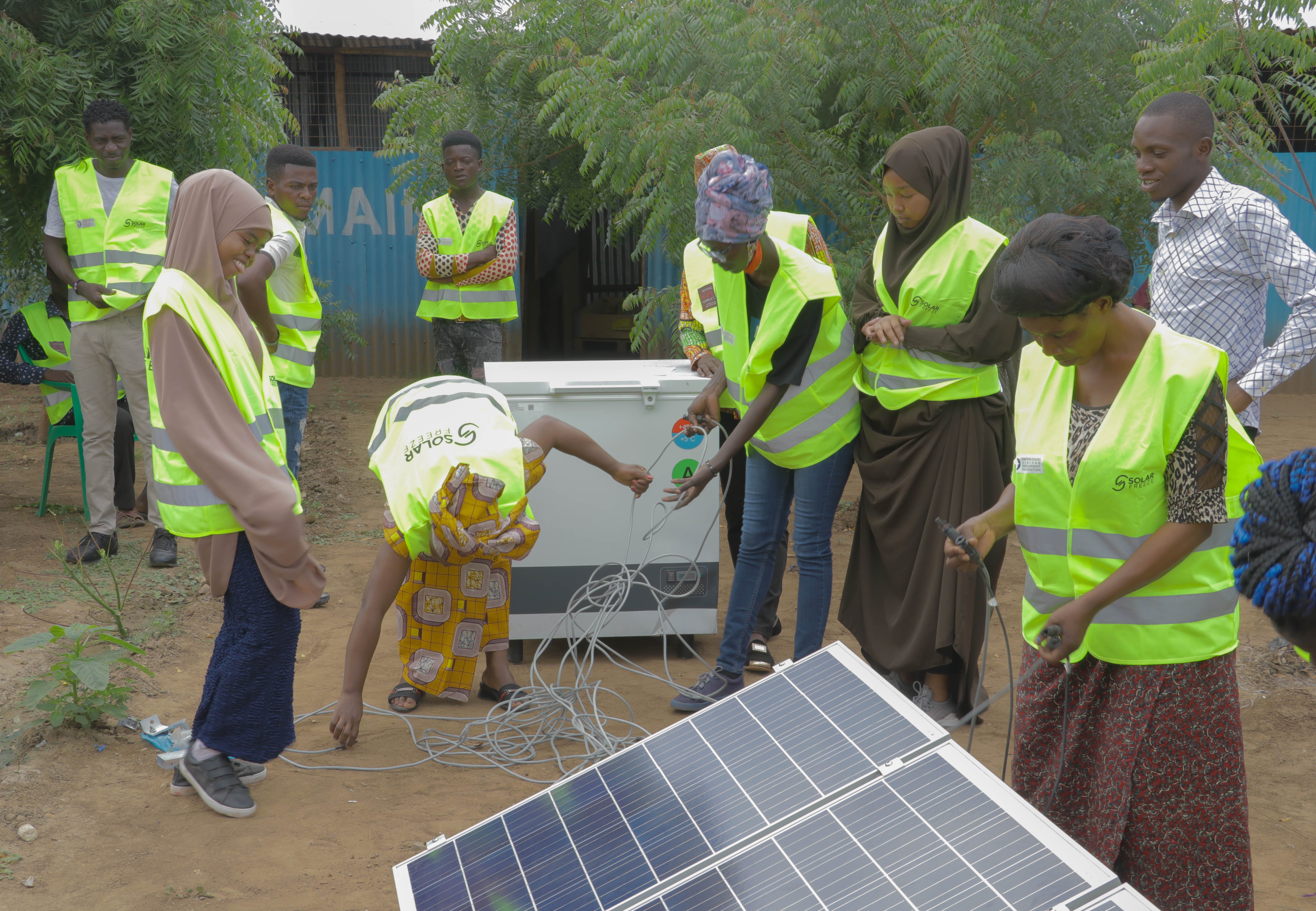If your breakfast could talk, it would likely tell you about the long journey to your table.
Each morsel of food, from your fluffy scrambled eggs to the milk you poured into your coffee, embarked on a farmer-assisted voyage to finally rest on your plate. It had to be planted, fed, plowed, transported, processed, stored, packaged, and eventually sold for you to meet your daily nutrient goals.
But what if we told you that it nearly didn’t make it? Or that you almost received half the amount of milk for the same price? This hypothetical is a reality, one that 2024 Waislitz Grand Prize Winner, Dysmus Kisilu, aims to change in Kenya and, eventually, across Africa.
Kisilu put it this way: “A lot of what you consume before it gets to your table, close to half of it, maybe 45% to 50%, ends up going to waste even before you can eat it. Imagine if that number was reduced, even to less than 10% going to waste; you'll have more variety and your food prices will be cheaper.”
You see, the most important part of your food’s route to you is something called postharvest cold-chain storage. This is a place where the food can sit and preserve its freshness on its way to being either processed or sold. However, a lot of smallholder farmers across sub-Saharan Africa cannot access or afford this storage, or the electrical power it takes to maintain it. This means the food they’ve worked hard to produce becomes spoiled and goes to waste.
 Waislitz Global Citizen Award Grand Prize Winner, Dysmus Kisilu, on the ground for Solar Freeze.
Waislitz Global Citizen Award Grand Prize Winner, Dysmus Kisilu, on the ground for Solar Freeze.
Because of this and a personal call to help protect and boost small-scale farmers’ income, the Kenyan social entrepreneur started Solar Freeze — the venture that would win him the Waislitz Grand Prize Award.
“The simplest way to define what we do is that we help small-scale farmers, especially in rural areas, preserve the food that ends up on your table, particularly as most of them are based in far-flung areas without access to electricity or better roads,” Kisilu told Global Citizen.
Solar Freeze uses solar-powered cold storage solutions to combat postharvest food waste for smallholder farmers in an environmentally conscious way. The enterprise provides farmers with access to an innovative mobile solar-powered cold room, aptly named Solar Freeze, where they can store their produce. For smaller quantities of harvests, the farmers can use the enterprise’s app to find their nearest Solar Freeze solution, where they can share the storage with other farmers. The enterprise also provides refrigerated transportation and assists with distribution.
If this sounds like a big task, it is. But with the Award under his belt, Kisilu envisions it getting bigger.
“Right now we are just in Kenya serving three major regions,” he told us. “Our biggest customers have been in the fish sector as well as in the milk sector and fruit sector, so we feel like we have only just scratched the service.”

He continued: “We are serving 300,000 small-scale farmers and we can get to one million in the next five years. Our target is: how can we scale that within Kenya? So, we are looking at opportunities to get partnerships with farmer cooperatives. And if we can collaborate more with rural small-scale governments to get our technology to those areas, can we also make it more profitable for farmers to see that using renewable energy makes financial sense and makes sense for the environment?”
It’s already impressive that Solar Freeze assists hundreds of thousands of farmers across Kenya, but there’s one farmer who is the enterprise’s biggest fan.
“I grew up in a rural setting in Kenya, and my grandmother is a small older farmer,” Kisilu said, “she’s now the one who has become my biggest advocate.”
He added: “I've gotten a chance to implement a lot of renewable energy technology, especially solar-powered cold storage and solar-powered irrigation [including for her]. Seeing the personal difference that has made to her life and also the lives of farmers within our neighborhood has had a big impact on me.”
Kisilu’s grandmother is not the only woman in his life who’s had a major impact on his success. The social entrepreneur told us that when he won the Waislitz Grand Prize, his first call was to his wife, who also works in the social enterprise space.
“She was super excited. When I was applying she was the one who pushed me… This is a big award; I thought my chances were very slim to minimal. So she called me and told me, ‘You lose 100% of the shots you don't take’ — so I applied, and it went really well.”
 The Solar Freeze team conducting a skills training for Kakuma youth.
The Solar Freeze team conducting a skills training for Kakuma youth.
The Waislitz Grand Prize Award looks for people who are going above and beyond with their innovation and systems thinking to improve their community. Not only has Kisilu done this with Solar Freeze, but also through an initiative called “Each One, Teach One,” the premise of which came from one of his team members.
The initiative aims to upskill young women between the ages of 18 and 29 to earn an income in the renewable energy sector and become future leaders in renewable energy and smart agriculture. Experts within the Solar Freeze network train these women to operate, maintain, and repair solar power equipment; they are also provided with agricultural adaptation knowledge needed to assist community members who may be having issues with their Solar Freeze cold storage or other renewable energy equipment used for agriculture.
“We are really proud of that work because we are partnered with the technical universities such as Strathmore University and the Technical University of Kenya, so they actually get certificates that are accredited by universities on top of getting practical hands-on skills that they can use in the renewable energy sector as it’s one of the fastest growing industries,” said Kisilu.
He added: “Right now, we have a combined cohort of 2,000 since we started. And we hope to increase that maybe in the next five to ten years by two or three times.”
Not only did Kisilu — a University of California, Davis graduate and former MIT D-Lab Scale-Ups Fellow — express pride in the women who’ve passed through the skills development initiative, but he has also learned something from them.
“I learned something by asking them: Why will you want to study renewable energy? I expected I'd get big answers like, ‘I will learn about climate change and access to renewable energy.’ But most of them said, as long as you’re still young, you can learn as many skills as possible,” said Kisilu.
“There’s actually one person who said: ‘As long as you are green, you’re still growing,’ and I paused for a moment and thought about that. I said: ‘Am I still green, and am I still growing in whatever I’m doing? Am I still curious? Am I still willing to learn new skills?’ Because that is one thing I’ve learned in terms of life, whereby you should be green in terms of looking for new opportunities, expanding your skillset, and learning what new industries are coming up, and that is what will make you grow.”
When speaking about the Waislitz Award Kisilu was a bundle of pride. He expressed his excitement to share the news with the farmers that the venture works with, as well as his team of 31 people who help propel the engine that is Solar Freeze.
He said: “I'm really proud of the work that they have done, even the initiatives that they have worked on internally. Programs like ‘Each One, Teach One’ were started by our team members who thought about how we could get more technicians on board. Sometimes, innovation comes from the team when there's ownership and people want to be in charge of the organization. I look forward to what they’re going to do in the future because it's just the beginning, and there's so much more to come.”
This begs the question, what is the “more to come” that Kisilu mentioned? Well, he expressed that he would not only like to increase the cohort size and capabilities of the ‘Each One, Teach One’ initiative, but with Solar Freeze, he hopes they can expand to assist 1,000,000 farmers in sub-Saharan Africa in the next five years. To do this, he hopes that he can continue to grow the team of engineers, salespeople, and researchers at the organization.
The founder is also interested in ensuring that everyone has access to a base knowledge of the functions of renewable energy so that the sector can continue to grow, and peer learning can become more common in areas that need the knowledge most.
With renewable energy becoming a pressing need across the African continent in the face of energy poverty and the climate crisis, and climate-fueled natural disasters continuing to threaten the harvests of hard-working smallholder farmers, the time has never been more ripe for a venture like Solar Freeze.